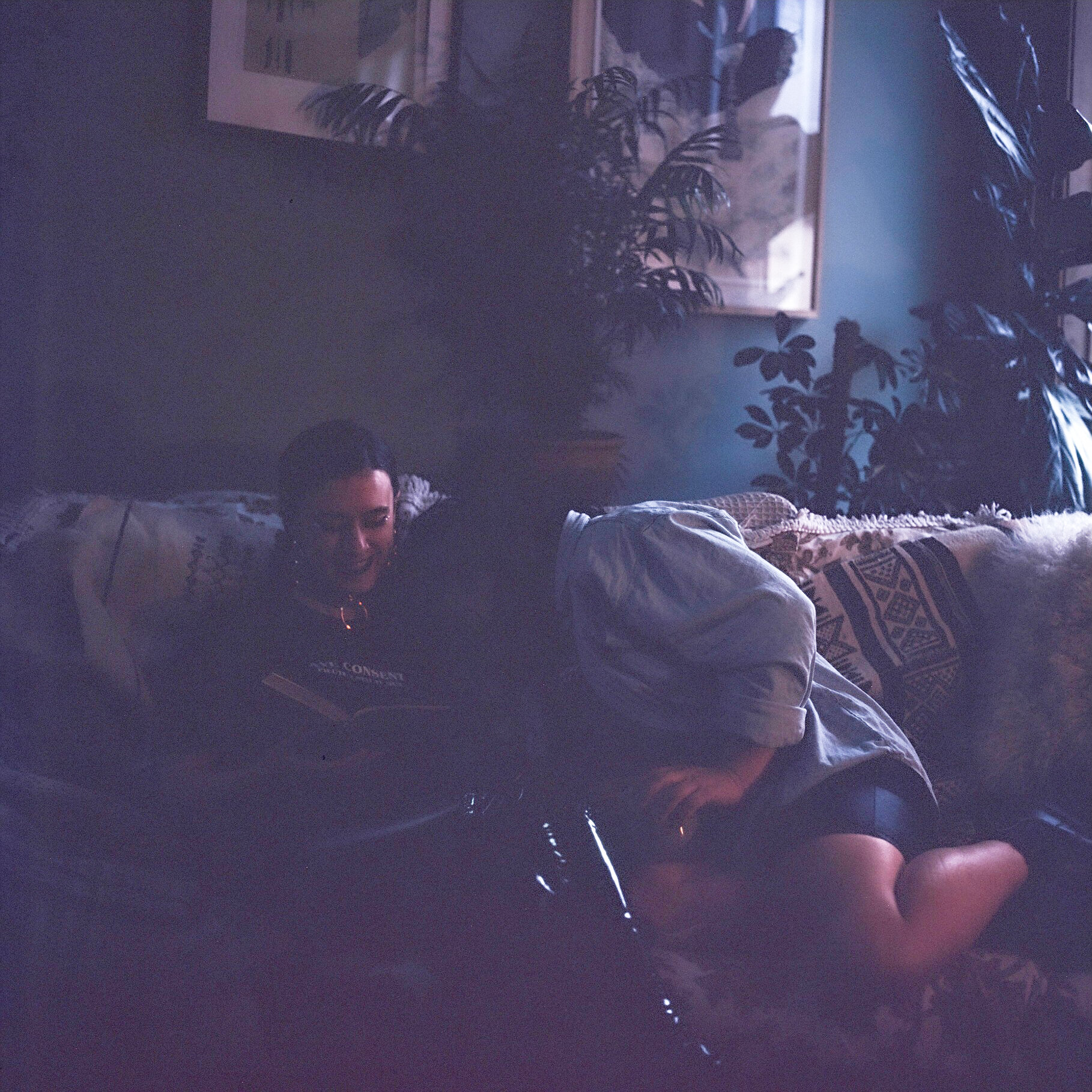


Photography by Seb Singh
Interviews by Erin May Kelly
Set Design by Isabel Forbes
Frieda
@friedafordart
Frieda’s work inherently focuses on the idea of ‘Queering the Romantic’; she uses film, performance and costume to communicate her own interpretation of love narratives. “In traditional love stories, the idea of consent is completely not woven into the story, it’s to do with power or war, or conquering,” she explains. “Queering it as a way of freeing it up, and opening up new avenues of love, pleasure and desire.”
An ECA Intermedia Art graduate, Frieda now sits on the committee for Embassy Galleries, and actively pursues community engagement work, focusing on the use of workshops and the building of community networks. Her art is rooted in costume and performance, and she draws inspiration from the cliché; “I’ve always been quite drawn to the idea of the cliché, this double vision, very recognisable but potentially without so much origin.” She laughs as she discusses her recent performance Roses are Red (my love.) in which she consumes fake roses selected from a heart shaped box. “The plan was to eat them at the beginning, but I found out a lot of them have wire inside them.”
Turning the conversation to her own definition of consent, she tells me; “Consent means opening up space for someone else to talk. It’s a way of giving power to someone else both explicitly and inexplicitly, and it’s about healthy rejections, appreciating both yes and no.” In the context of performance art, she understands consent to play a role in the filming of other people; “It’s about how to make people feel happy in a space, when you want them to do a very specific thing.” Turning to her SIO x Pieute photographs with Kima, she highlights the contrast between our consideration of consent as a harsh concept, and the intimate photographs of the two of them; “We’re showing soft, caring movements towards each other,” she says, “and giving that sort of Vaseline lens, I did consent as well.” Speaking to the importance of our conversations about consent, she believes that we should consider the wider implications; “[What’s important is] getting it into dialogue, and considering this idea of consent as something that bleeds into every aspect of life.”
Kima
@linda.kima.zake
“In filming, ultimately [people] are consenting to me because they believe that I will protect them.” Videographer and photographer Linda Kima Zake was born in Soviet Latvia, and since moving to the UK, has seen her erotic films receive international recognition. “The attitude here was different,” she tells me, “I met with sub-cultures of the fetish world, and from there I found models and started doing photography.” Kima’s lens intentionally subverts the male gaze commonly seen in erotica, and leans into queer and fetish communities; “the things that stand out about my work is that I work [with], and help those communities of local kinksters and queers, and that has kind of pushed us to redefine much of the terminology of sex positivity which exists.”
It was her observations on erotica as a whole, which led to her pushing forwards with her own experimental films; “There’s not much queer and body positive representation when it comes to erotica,” she reveals. Kima’s work uniquely explores what exactly defines erotica and pornography, and where the boundary is drawn between the two. Speaking to how she perceives her work, she highlights the impalpable aspects of sexuality; “[it’s] concentrating on sensuality, on feelings, on looks, on memories, things that feel intangible but that you can actually show visually.”
Весна (Vesna) is her latest piece of work; a short film which examines the femme relationships and tradition, and how this is impactful on sexuality. “[You are taught] under the guise of tradition and correctness in society, and yet a lot of it is just trying to regulate young women’s bodies and behaviour,” she tells me. “[I’m] trying to non-verbally show the difficult dynamics,” she continues, “society teaches us how we pass on this knowledge to each other, through love, pain and violence.” Tradition and sexuality can often be at odds with each other, and her film considers the ways in which we can often subvert our own sexuality for fear of societal rejection. “Suddenly at one point, in your late teens or your twenties, you realise there’s this whole big chunk of you which can dictate how you socially behave and think, and nobody has taught you anything, how to deal with it.”
Evidently, themes of consent are a fundamental aspect of Kima’s work in erotica, and she herself defines consent as a process of trust; “ultimately consent is a very abstract thing which consists of several elements, [but] in its diluted form, it is trust and respect.” Speaking to consent in the context of her work, she discusses the responsibility of the filmmaker to respect their subject; “[Trust] means that they believe my vision, but I also have to be aware of all the things which may them feel safe” she says, “every time I deliver [on that] I feel on top of the world.”

